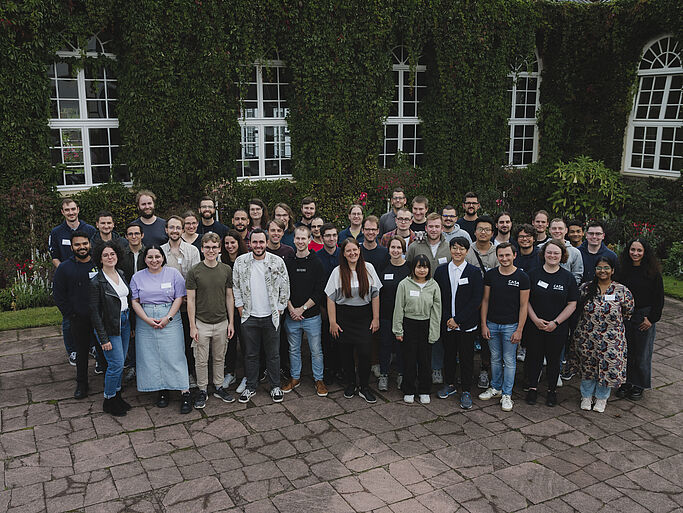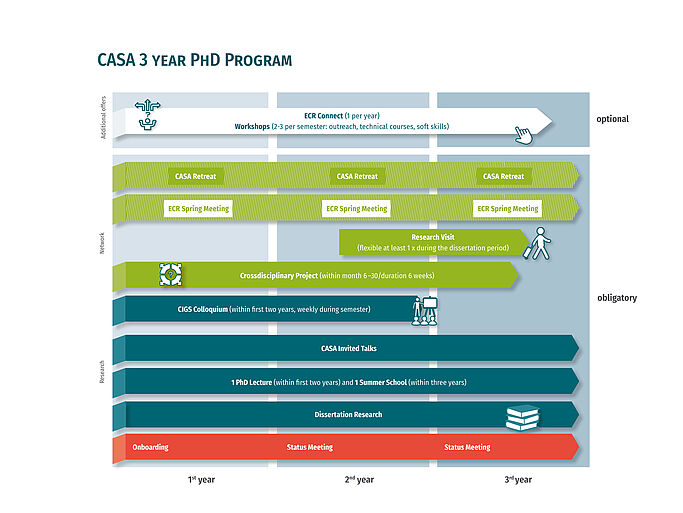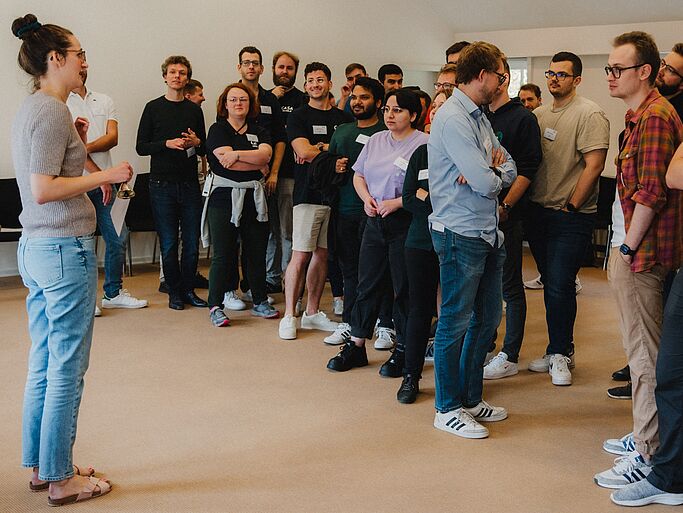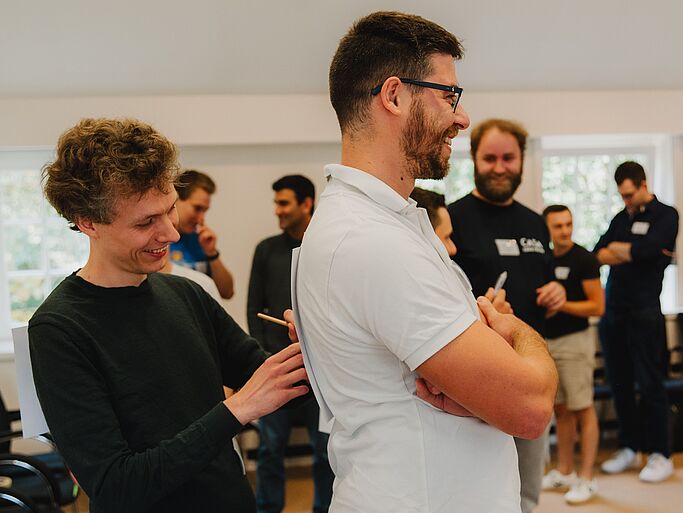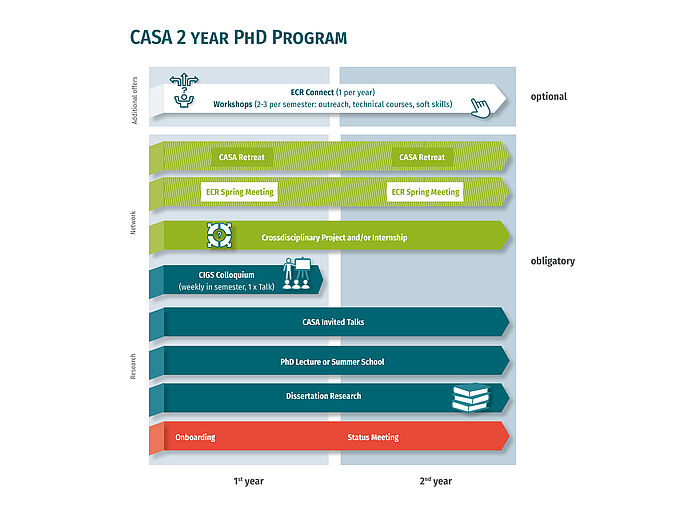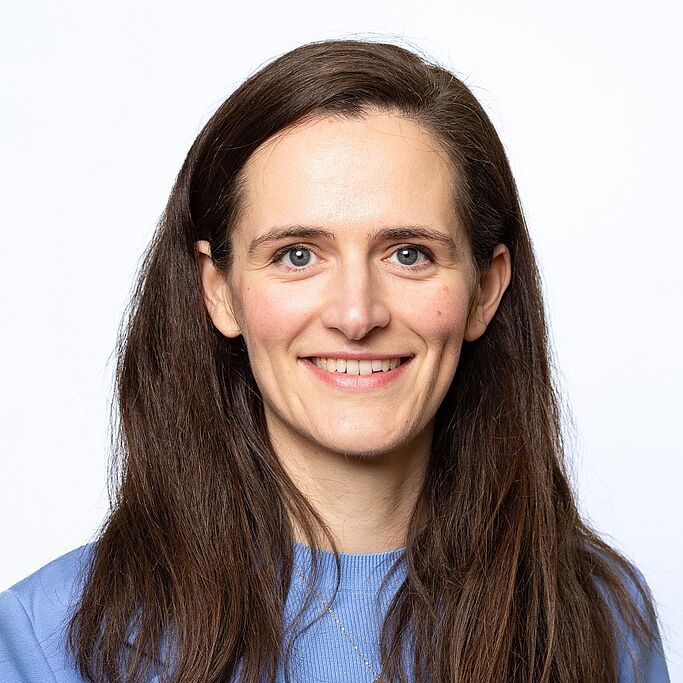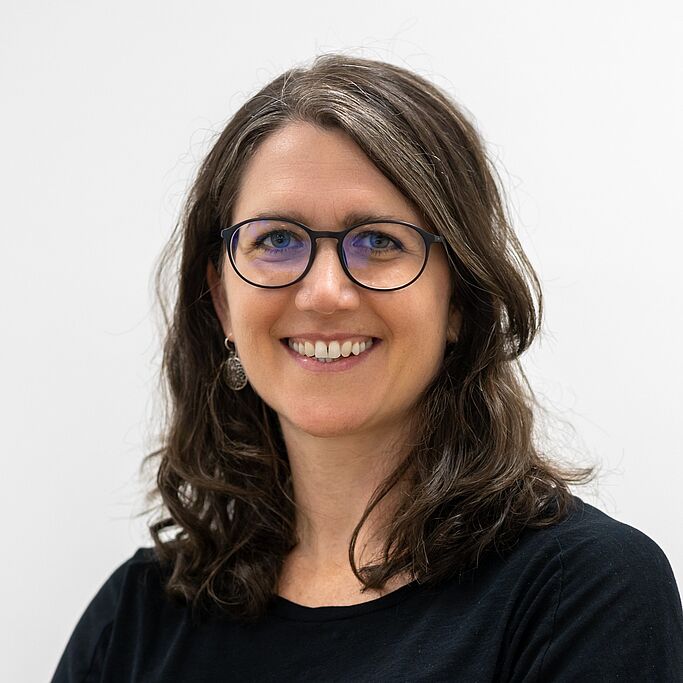Onboarding and Status Meetings
At the beginning of their time in CASA, PhDs receive a detailed onboarding with an overview of the relevant structures in CASA, of the PhD Program and of support structures. We also provide all new PhDs and Postdocs in CASA, who are joining from outside RUB, with a Buddy, i.e. an experienced current CASA PhD or Postdocs.
PhD Lectures
Within their first two years at CASA, each doctoral researcher takes one Master’s course taught by a PI in the Faculty of Computer Science to gain new perspectives on their research area from related fields.
Summer Schools
Our CASA summer schools are organized annually and bring together ECR (students, PhDs and postdocs) from all areas of cybersecurity. The events offer a diverse program with lectures, workshops, networking and poster sessions by the participants, and a social program. Each summer school has a specific thematic focus and is accompanied by one or more CASA PIs, who are renowned experts in the respective field. In addition, we invite outstanding guest speakers who enrich the program with exciting lectures, discussions, and workshops.
More information on the CASA Summer Schools.
CASA Distinguished Lectutes and CASA Invited Talks
To deepen our dialogue with the scientific community, CASA and the HGI host two speaker series: CASA Distinguished Lectures and CASA Invited Talks. Talks typically run for about an hour and are followed by an open discussion with the audience; both series aim to encourage dialogue and open new perspectives in cybersecurity research. The key difference is the speaker profile: CASA Distinguished Lectures feature renowned, high profile national and international leaders in the field, while CASA Invited Talks provide a platform for a broader range of speakers and topics, including emerging voices and new directions.
CASA Colloquium
The CASA Colloquium takes place weekly during the semester and is organized to help our doctoral researchers practice their scientific presentation and discourse skills. Besides talks on basic research and cross-disciplinary projects, the CASA Colloquium also features talks on research visits of PhDs, and insights into the scientific career path of our CASA PIs and postdocs. The CASA Colloquium offers the opportunity for regular (scientific) exchange among the PhDs.
Cross-Disciplinary Project
To make interdisciplinary research a core component of CASA, each doctoral researcher is encouraged to spend approximately six weeks researching in the group of another CASA Principal Investigator—ideally a PI from a different Hub or a PI in the same Hub working in a different subdiscipline.
Research Visit
Research visits offer Early Career Researchers a valuable opportunity to experience diverse academic cultures, methodologies, and perspectives—broadening their horizons and expanding their international networks. CASA PhDs and postdocs can undertake research visits at universities, research institutes (including industrial research labs), and startups.
ECR Spring Meeting
This event takes place every spring and is organized by the Early Career Researchers. It serves as a dynamic platform for fostering collaboration, knowledge sharing, and professional growth among ECR from various disciplines. Besides the main Retreat, the event offers additional possibilities for research exchanges and networking. Every year, the event features a special thematic focus, which is carefully selected to address relevant and emerging topics in the research community. This thematic focus guides the content of the workshops, e.g. the panel discussions, ensuring a cohesive and enriching experience for all participants.
CASA Retreat
The CASA Retreat is the main annual event for all scientists involved in CASA. It is a three-day event consisting of various networking and exchange formats as well as scientific presentations. All doctoral researchers either do a poster presentation or hold a lightning talk during the Retreat. Various activities for ECR only are embedded in the Retreat, for example a teambuilding activity and an ECR session.


